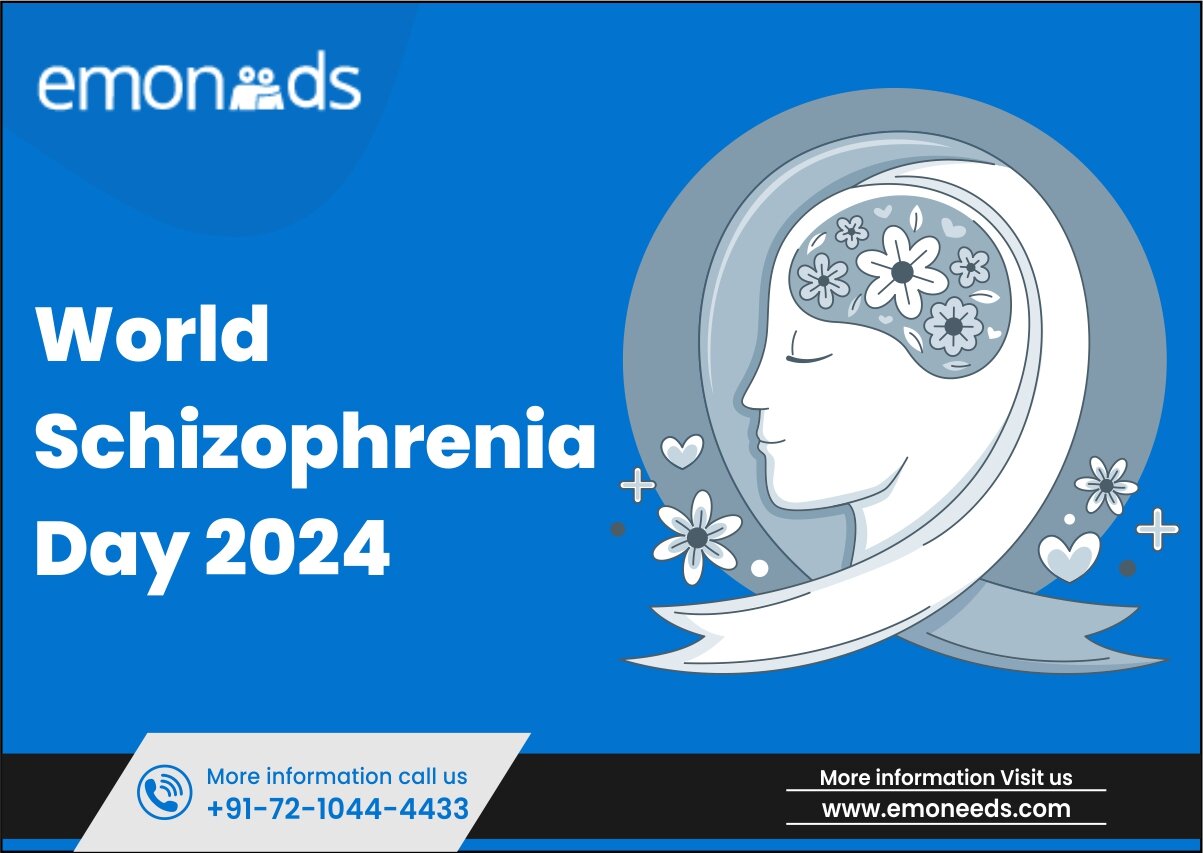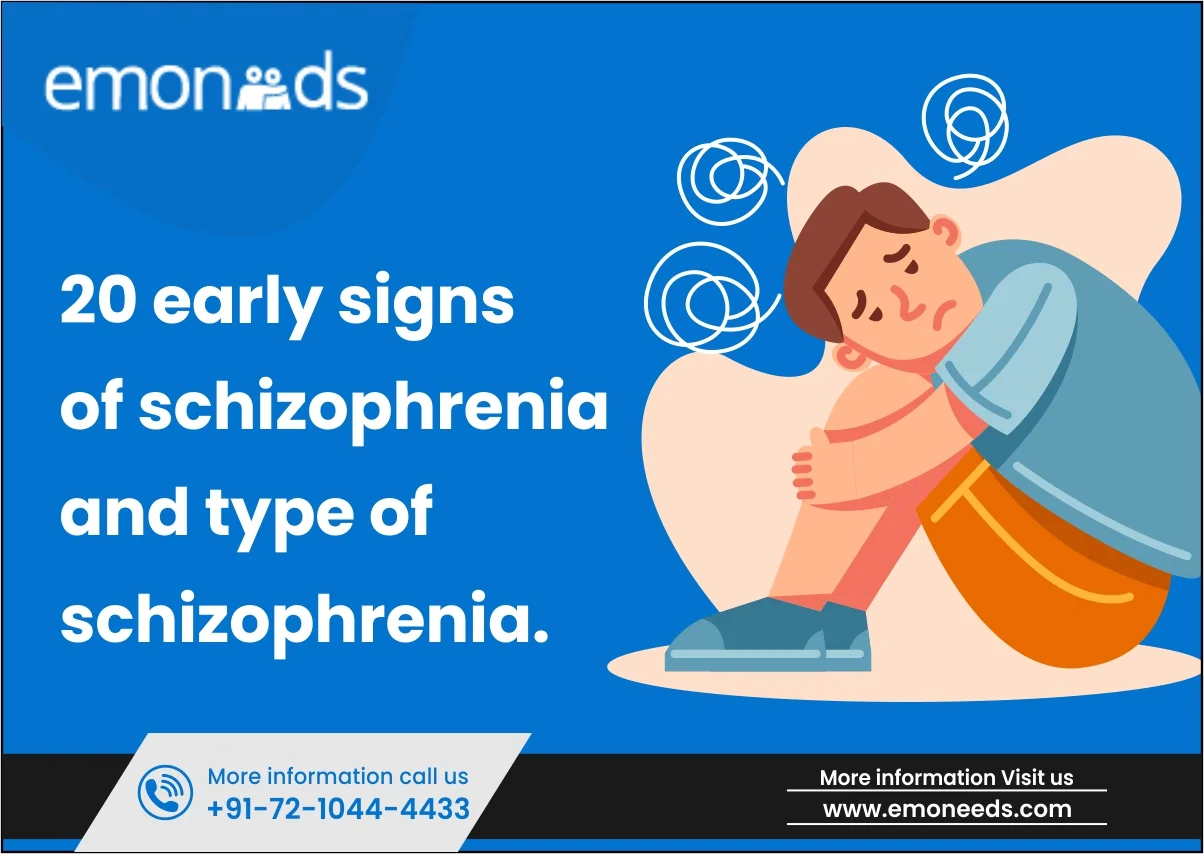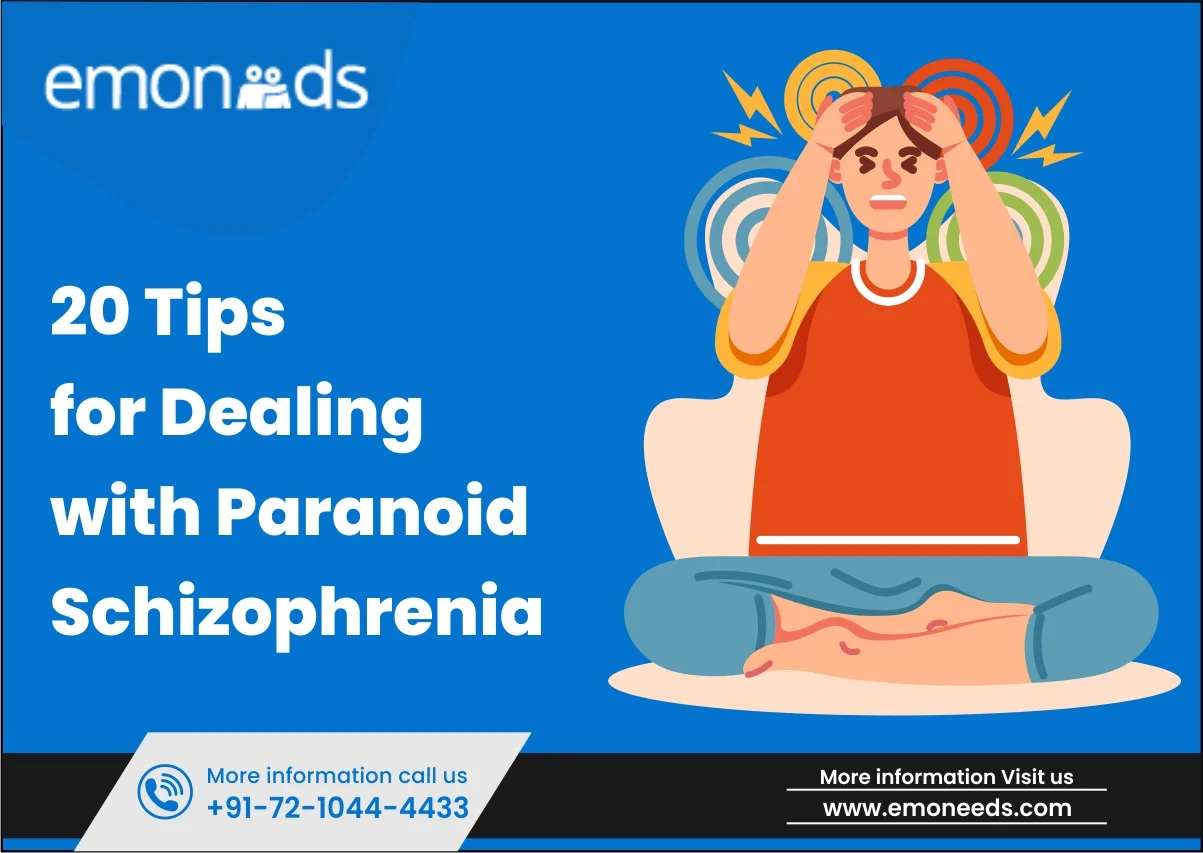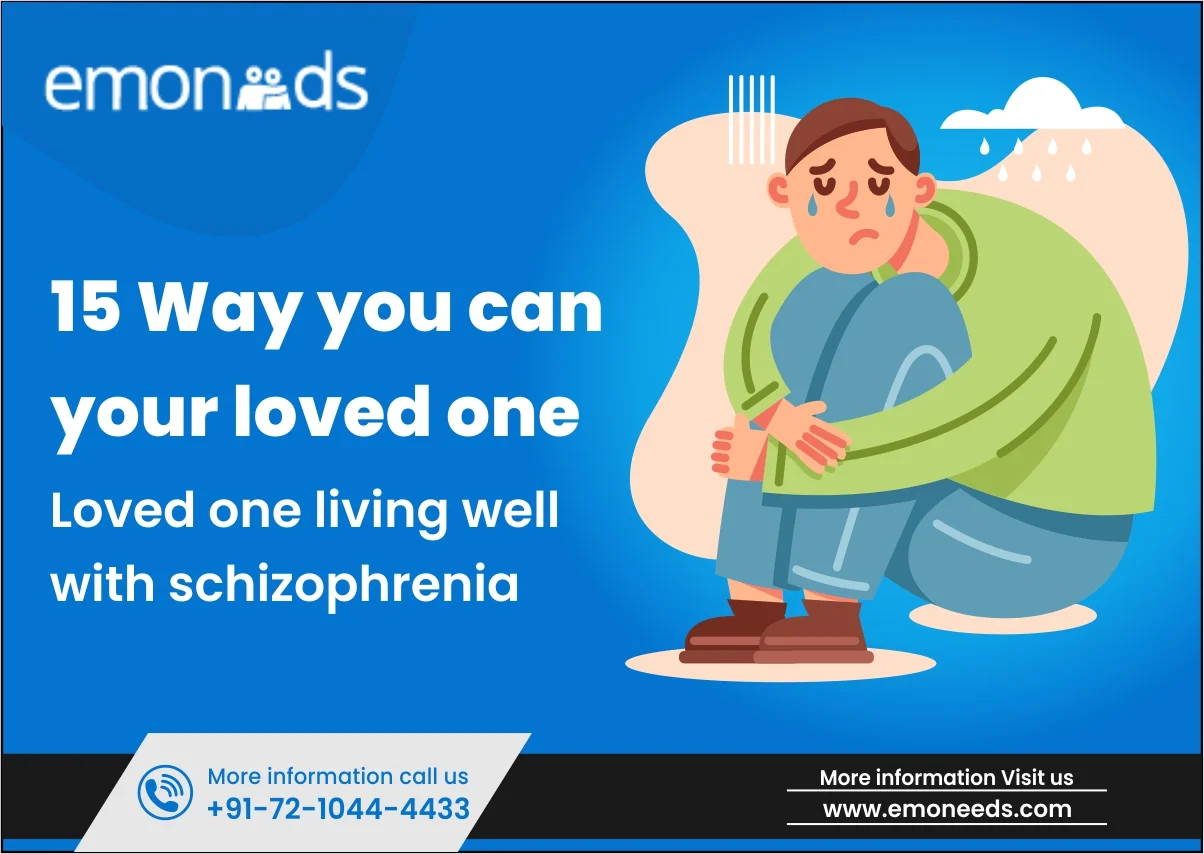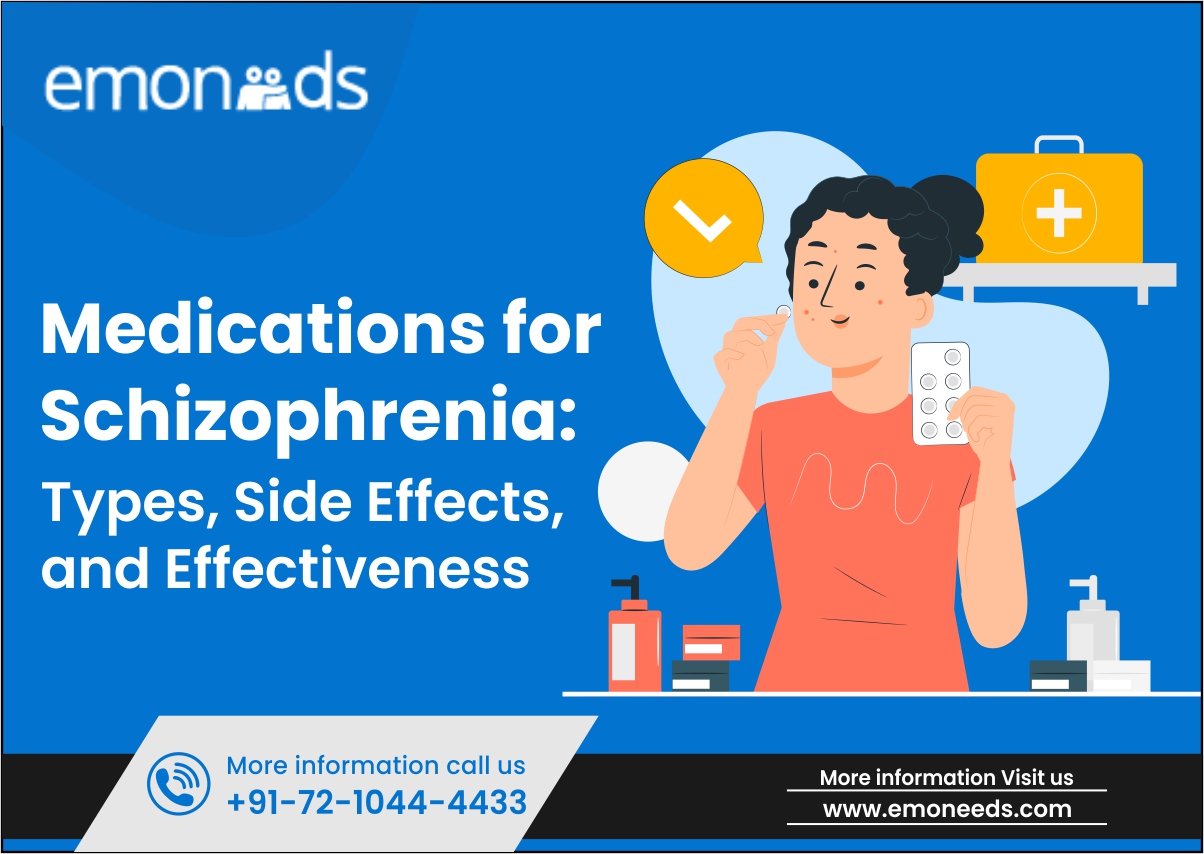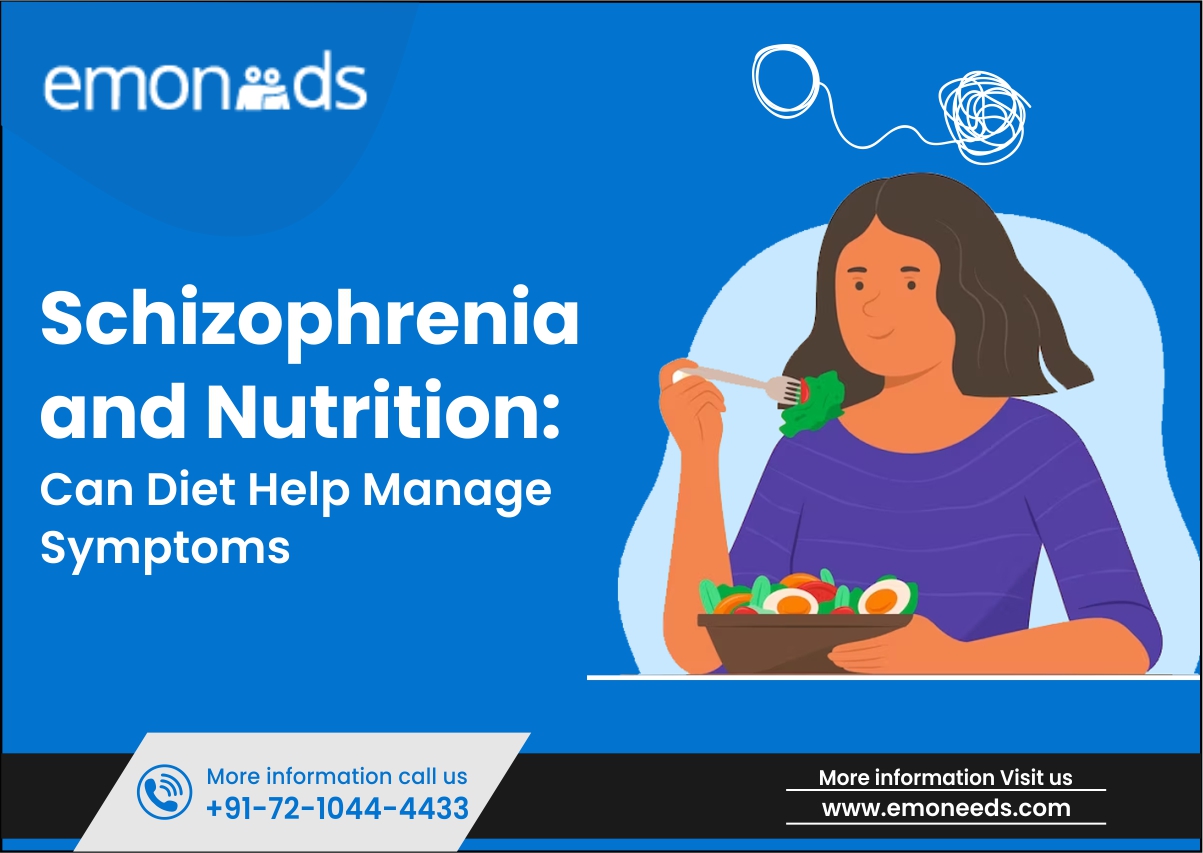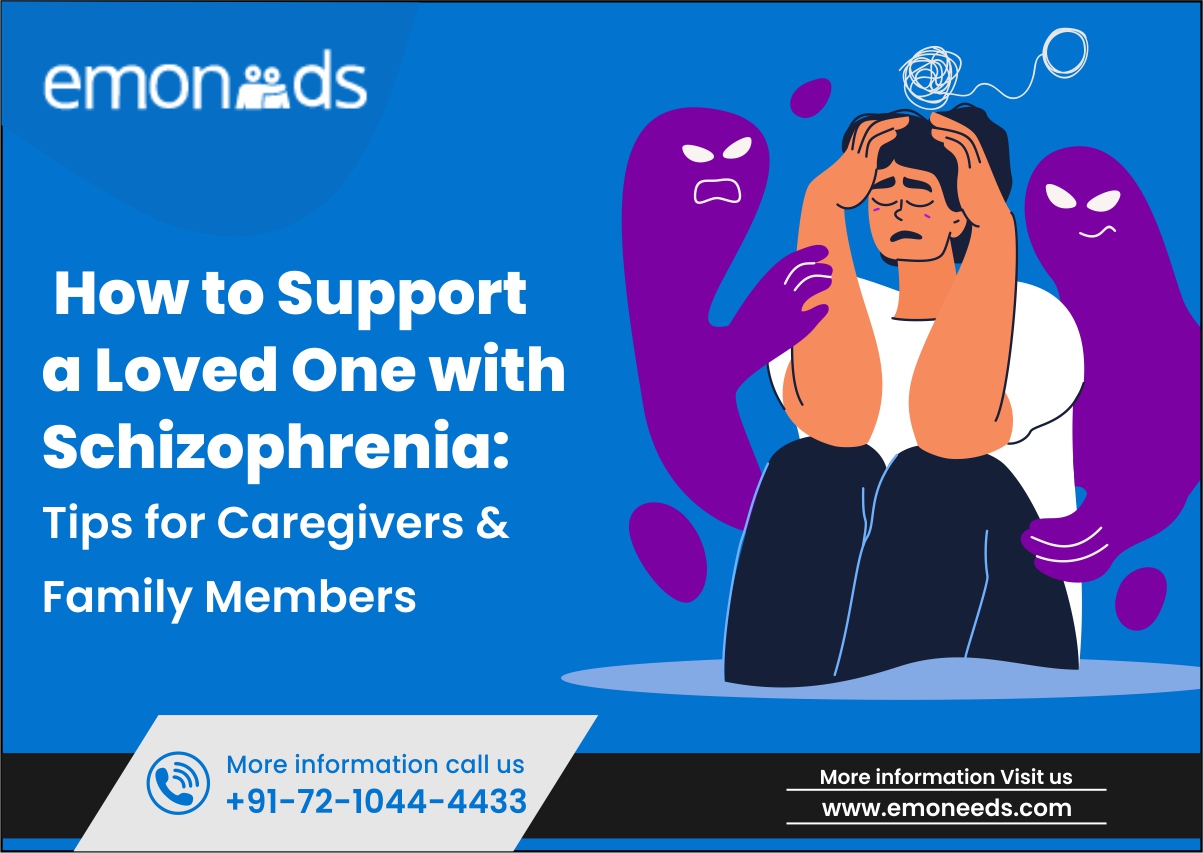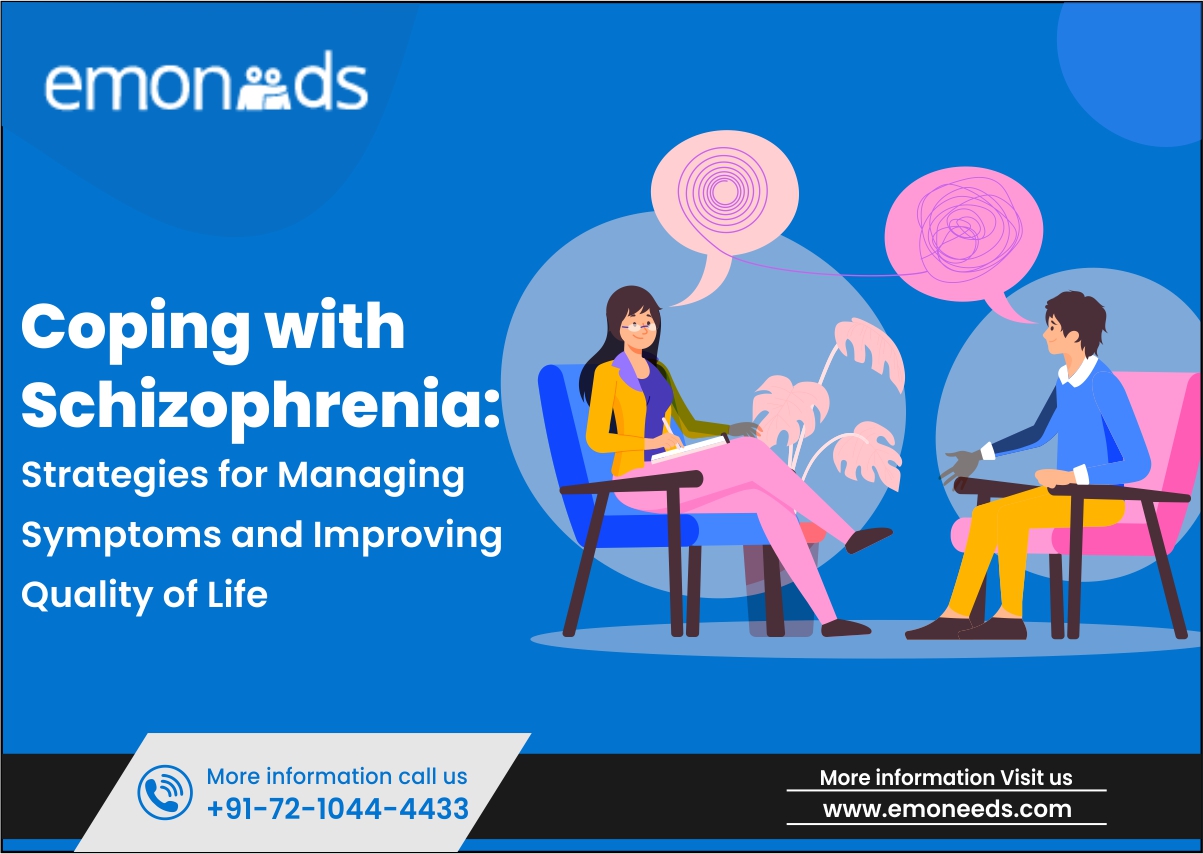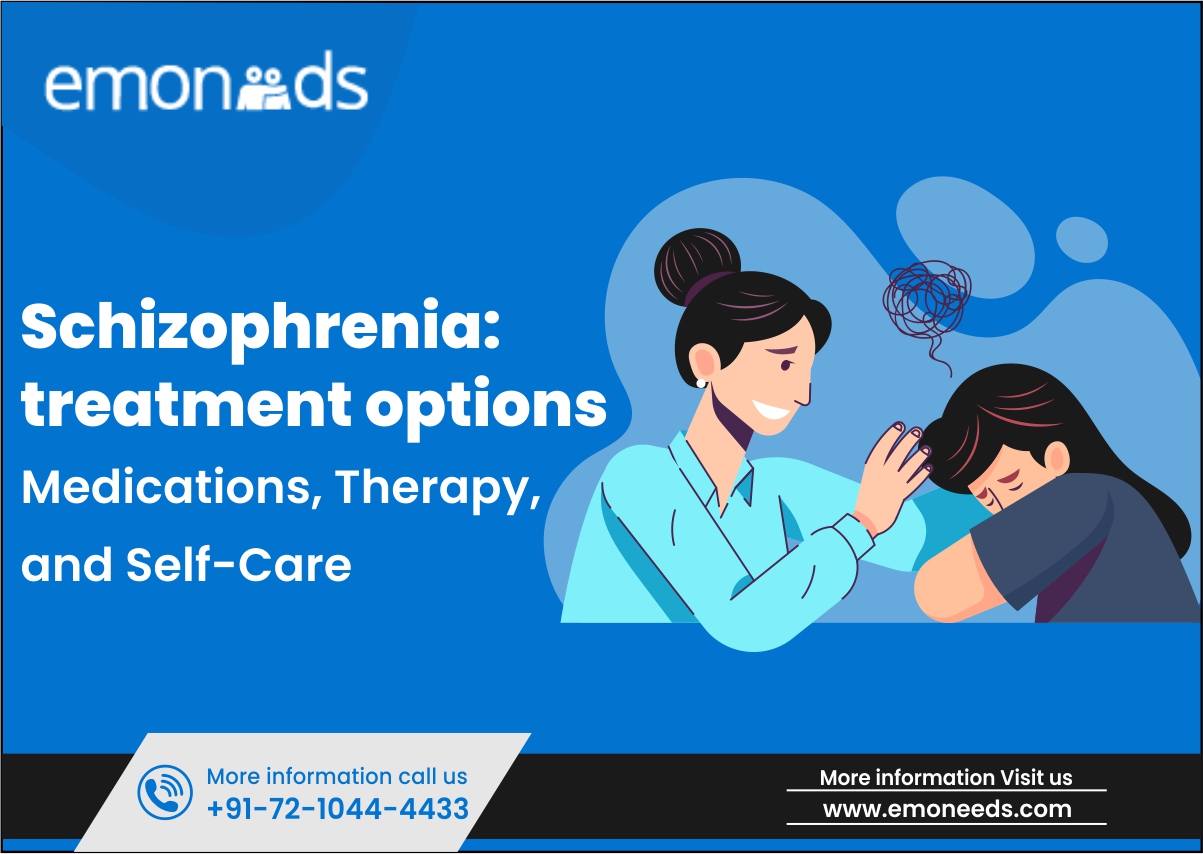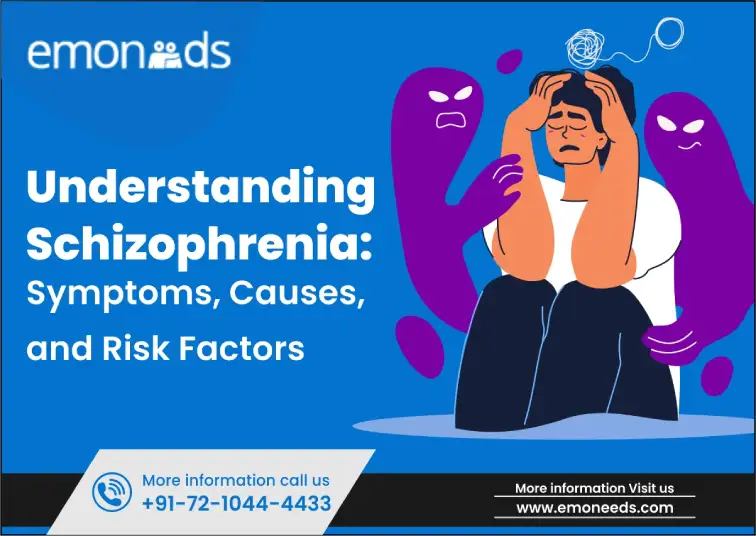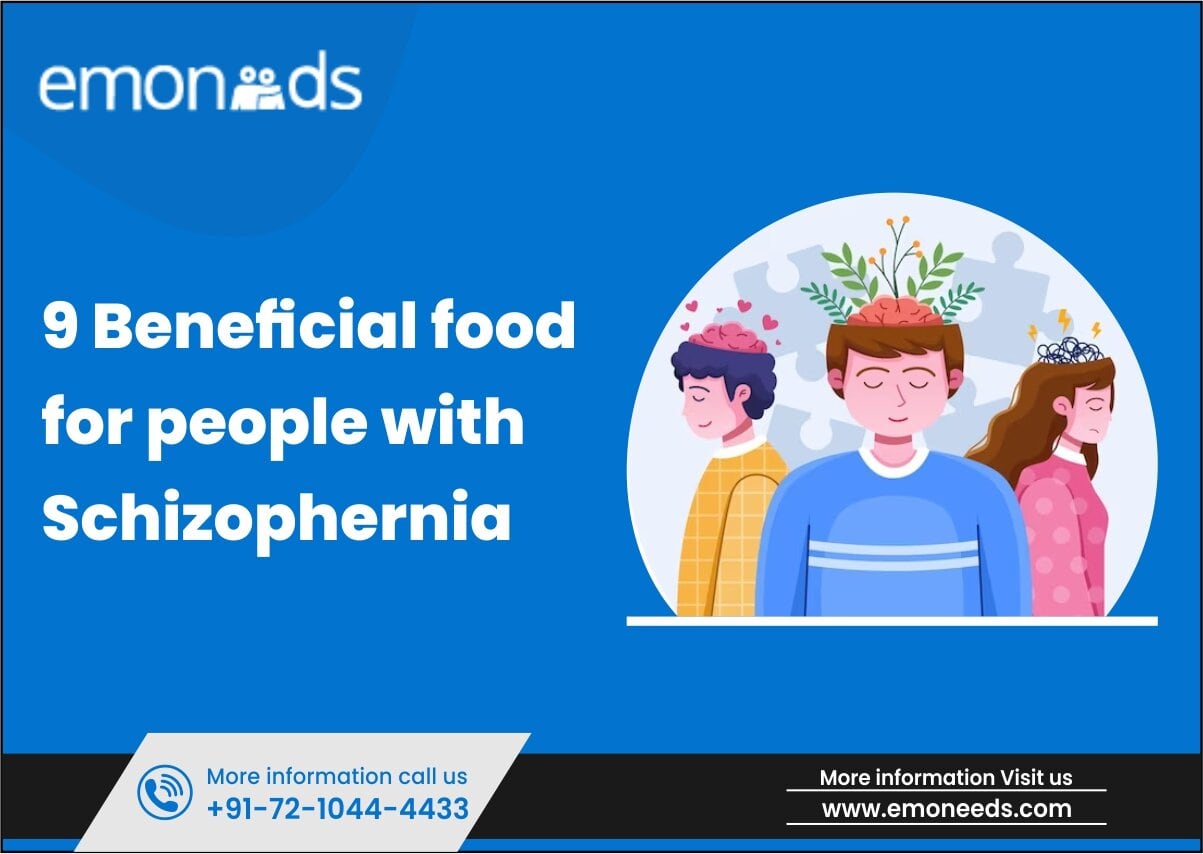
Schizophrenia is a chronic mental condition in which people experience distorted reality and often experience delusions as well. It is estimated that about 1% of the population worldwide affects with the condition. It can occur in both men and women irrespective of age. However, men develop schizophrenia symptoms in their late teens or early 20s, and women show signs later, often in their late 20s and early 30s.
People with Schizophrenia have unhealthy diet routines, and these bad eating habits can lead to health issues that put them at more risk of diabetes and heart disease. As per research, diet and Schizophrenia are connected, and specific dietary changes can help people with the condition. With an appropriate diet, you can prevent the worsening of symptoms as certain nutrients along with prescribed medicines can help in making Schizophrenia people live a better life. To learn about how diet can help in managing schizophrenia read schizophrenia and nutrition diet.
Positive and negative symptoms of Schizophrenia
The condition may develop in early adulthood, and people may experience both positive and negative symptoms of Schizophrenia. Positive symptoms are those when you experience things in addition to reality, and negative symptoms are when you lose the ability to do something. There are many causes of Schizophrenia; however, its development is believed to be genetic.
Can a particular diet plan help people with Schizophrenia?
As per many theories, diet is linked to the condition, and taking this dietary approach to help people treat with Schizophrenia will help them in many ways. However, it can not replace the treatment of the condition, but it can offer a successful outcome. Not only will eating beneficial foods help, but also avoiding certain things can help a person with Schizophrenia avoid eating food additives and choosing organic food alternatives.
Consuming a gluten-free diet can also help with the condition which is found in a surprising number of processed foods. Of course, medication and psychotherapy like CBT and behavioural training are primary treatment options for Schizophrenia treatment as these help in managing symptoms and help people to lead successful lives. However, changes in diet can help them achieve successful outcomes from these treatments. Some nutrients help our brain function optimally, like iron, Omega 2 fatty acids, Vitamin B6, Vitamin B12 and zinc.
It is best to consult an experienced doctor for the treatment of Schizophrenia. Visit Emoneeds, the centre for all your mental disorders, with a great team of Psychiatrists and psychologists who work to prevent relapse for patients who struggle with chronic mental health issues.
Nine beneficial foods for people with Schizophrenia
Consuming a balanced diet is the key to maintaining good mental and physical health. By consuming a healthy diet that comprises these foods help protect from developing Schizophrenia or reduce its severity if it does occur. Below listed are nine beneficial foods that can help with Schizophrenia and also reduce your risk of developing the same.
Diet for Schizophrenia must include the following:
Fruits
As per research, schizophrenia patients often lack fibre intake. It is best to consume fruits fully packed with fibre:
- Apples
- Artichoke
- Bananas
- Beets
- Broccoli
- Carrots
- Mangos
- Oranges
- Pears
- Raspberries
Veggies
Eating vegetables rich in potassium can help manage sugar levels, and adding beans, kidney beans, and sweet potatoes to your diet can do wonders. Spinach is said to be one of the best veggies for Schizophrenia, as it has a high amount of folate that helps to ease symptoms. You can also incorporate black-eyed peas, asparagus, and beef liver.
Legumes
Including legumes in your diet plan can help reduce the risk of developing Schizophrenia. Consuming legumes, including beans, lentils, and peas, is very beneficial as they are high in fibre and B vitamins.
Nuts and seeds
Nuts and seeds, including chia seeds, flaxseeds, almonds, and walnuts, contain omega-3 fatty acids. These help prevent cognitive decline associated with mental illness.
Whole grains
Eating whole grains like oats, quinoa, and brown rice, which are rich in vitamin B, can help reduce your risk of Schizophrenia and improve overall health. To attain maximum benefits, try to consume at least three servings of whole grains a day.
Lean proteins
Lean protein intake from chicken and fish helps maintain healthy brain function. It provides essential amino acids for proper brain development.
Dairy
Dairy products are fully packed in vitamin B and omega-3 fatty acids, which help protect against cognitive decline linked to Schizophrenia. Milk, cheese, and yoghurt not only help with bone health but also with proper brain functioning.
Foods high in Omega 3s
Foods fully packed with omega-3 fatty acids can help prevent and reduce Schizophrenia symptoms and also decelerate the progression of the condition. For Omega 3 fatty acids, you must include the following:
- Chia seeds
- Cod liver oil
- Flax seeds
- Herring
- Mackerel
- Anchovies
- Caviar
- Salmon
- Sardines
- Walnuts
- This fatty acid can improve an individual’s nervous and immune function.
Foods rich in Vitamin B12
Folate foods with vitamin B12 have also been proven to improve Schizophrenia symptoms. To boost your vitamin B12 level, you must include liver and soy bread in your diet.
- Egg
- Chicken breast
- Tuna and salmon
- Yoghurt
- Low fat milk
- Fortified cereals
- Vegan spreads
Conclusion
It’s important to note that while a good diet can be beneficial, and if you think Schizophrenia is cured by diet, then remember it should not replace professional treatment for Schizophrenia. Consult the specialist at the best centre for the treatment of the condition. The treatment options include medication and many crucial therapies for managing the condition.
If you or someone you know needs help with Schizophrenia, it’s essential to consult with healthcare professionals for appropriate guidance and support. It’s important to remember that a diagnosis of Schizophrenia is not a life sentence, as its recovery is possible, especially with the love and support of your close ones.
FAQs
1. What diet is best for Schizophrenia?
Some dietary changes, along with prescribed medicines from an expert doctor, can help improve the lives of patients who have Schizophrenia. The diet for Schizophrenia must include fruits, veggies, omega-3 fatty acids, legumes, dairy, etc. It is also essential to say no to gluten, as it is known to be challenging to digest, and its by-products are linked with inappropriate brain function.
2. What are the nutritional requirements for Schizophrenia?
Consuming a well-balanced diet with adequate vital nutrients, like vitamins, minerals, and omega-3 fatty acids. These nutrients are essential in brain function and can support overall mental well-being. It is crucial to pay attention to nutritional intake while managing Schizophrenia. Some specific nutrients are capable of supporting brain function, helping to get rid of symptoms and enhancing overall well-being. Nutrients including omega-3 fatty acids and vitamins B6 and B12 also play crucial roles. A varied diet rich in vital minerals like zinc, magnesium and selenium also benefits mental health.
3. What resources can help with Schizophrenia?
If you are searching for the best schizophrenia treatment, visit Emoneeds for world-class therapy. Emoneeds offers the correct path and resources to empower individuals to manage the complexities of Schizophrenia gracefully. The clinic has a team of doctors,therapists, and specialists who create unique plans customized for each person. It is also equipped to treat other mental conditions.
4. What is the best therapy for Schizophrenia?
CBT, i.e. Cognitive behavioural therapy, is the best therapy for Schizophrenia. It teaches a person to modify beliefs and behaviours that lead to negative emotions. This therapy is a short-term problem-focused approach with the main goal of teaching individual skills that can assist them in managing difficult situations.
5. What are the five treatments for Schizophrenia?
The treatment options for Schizophrenia involve a combination of medications, therapies and self-management techniques. Different people Experiences are different for Schizophrenia and vary , as will the treatments that work best for them. 5 treatment options are : Cognitive therapy (mainly cognitive behavioral therapy [CBT] Cognitive remediation therapy), psychoeducation programs Family support , social skills (as well as other coping skills),Training programs, Case management or ACT.



